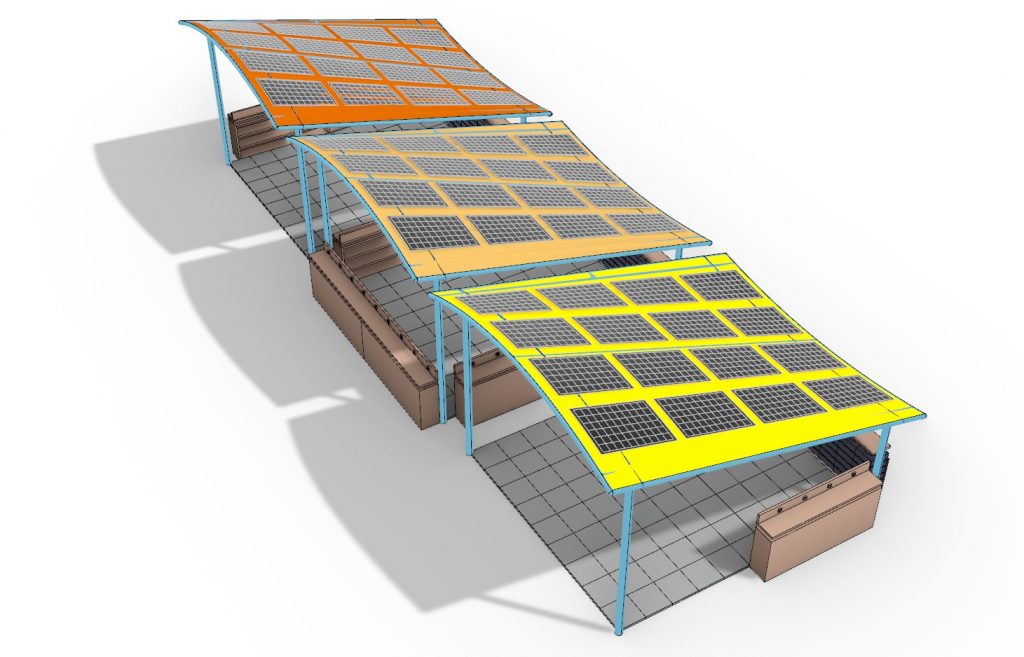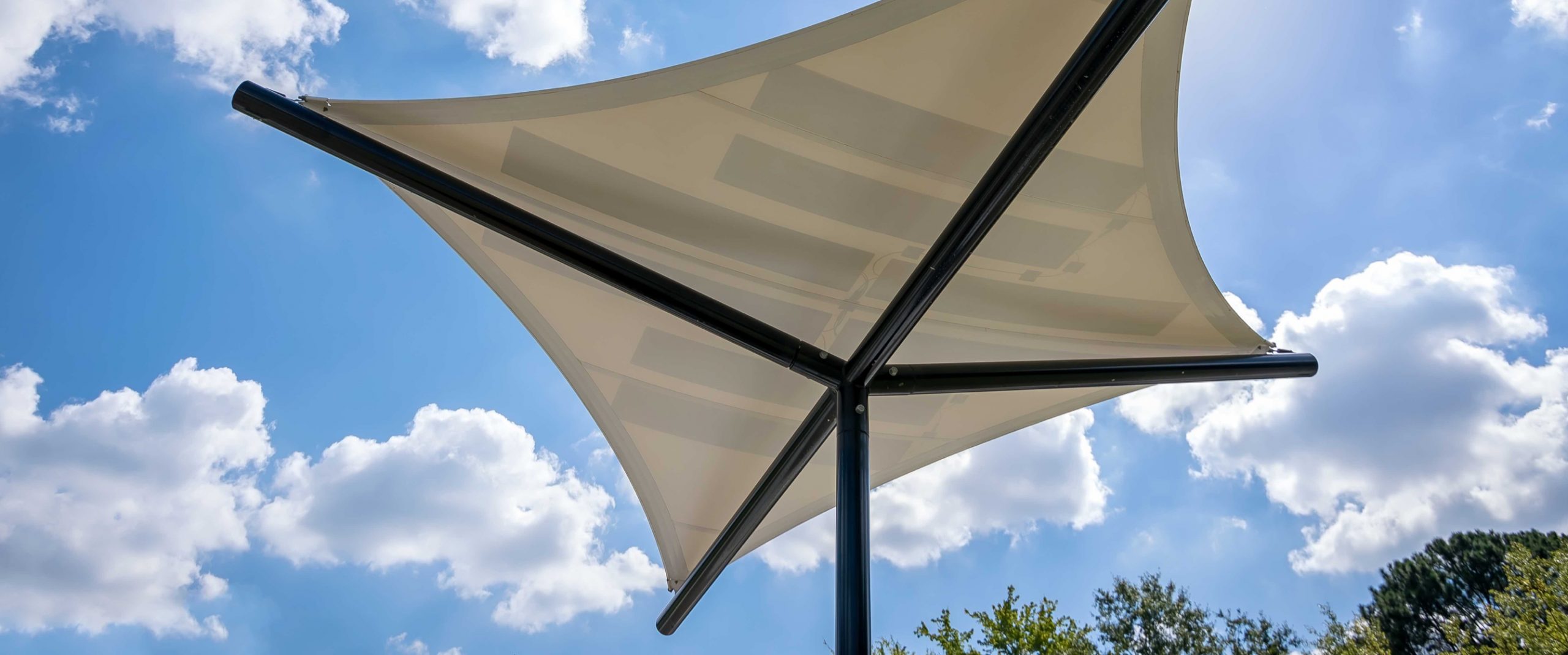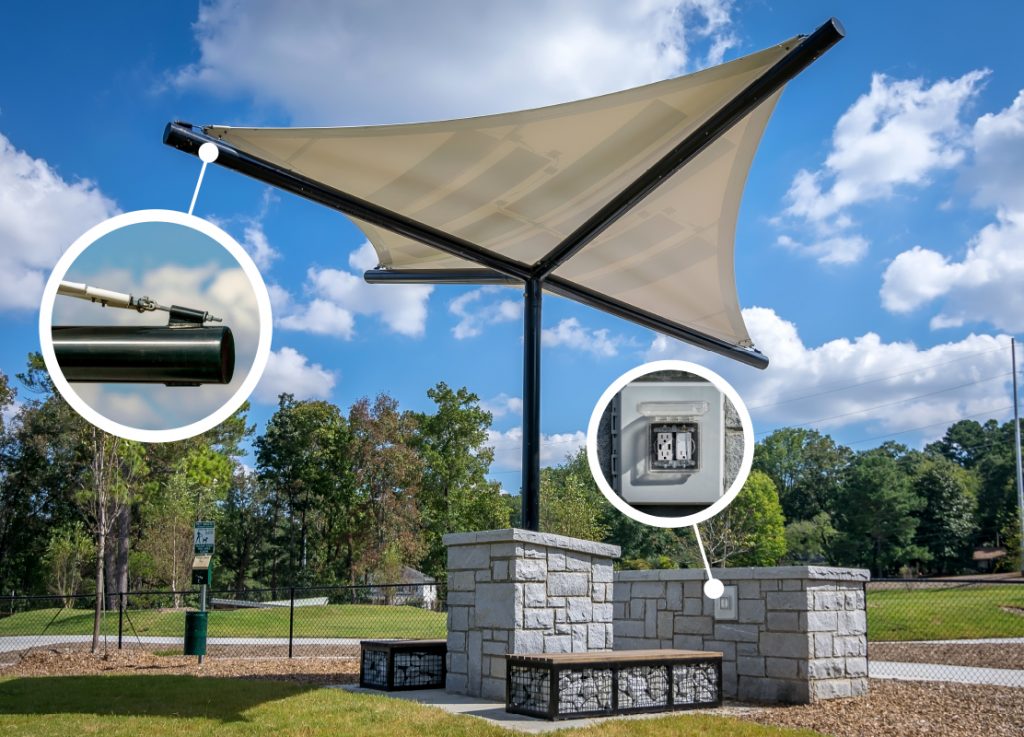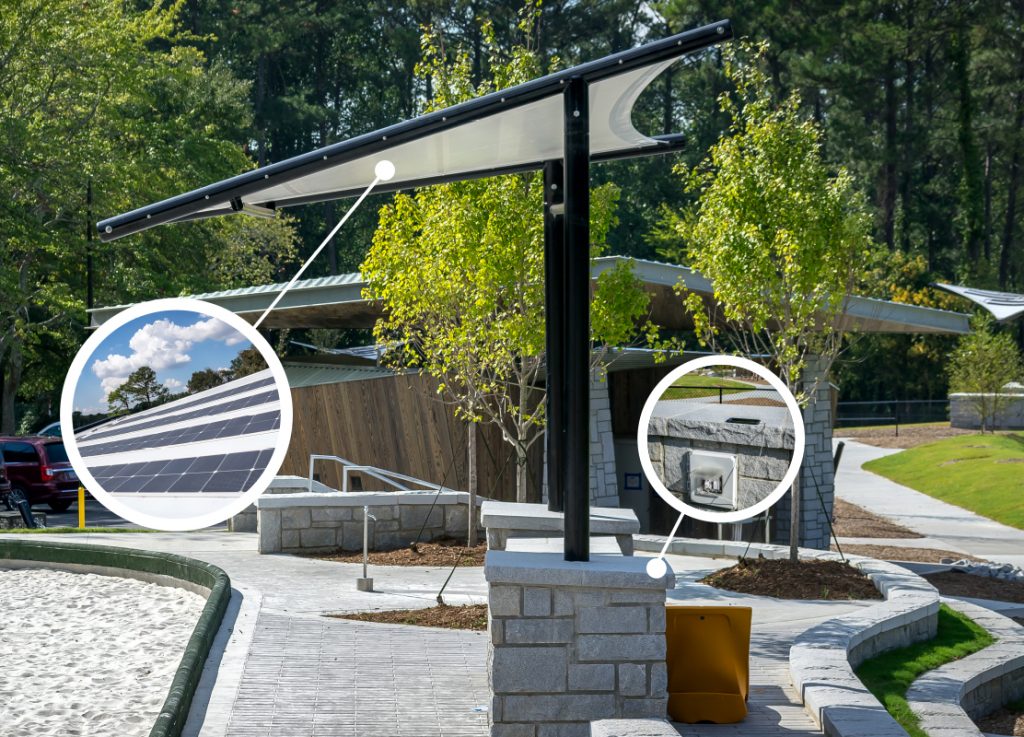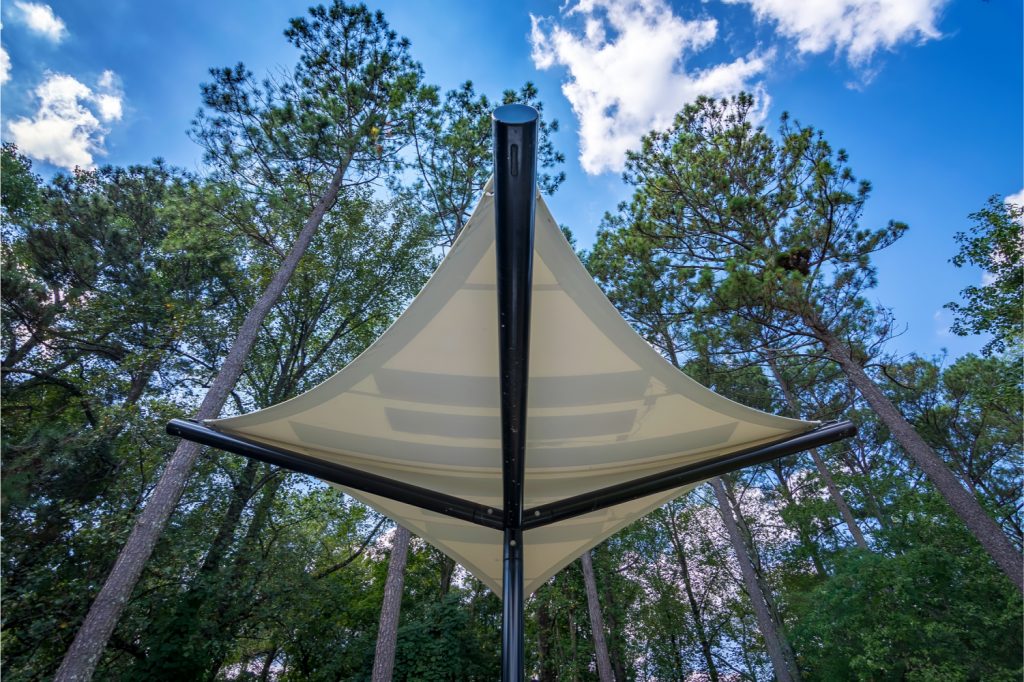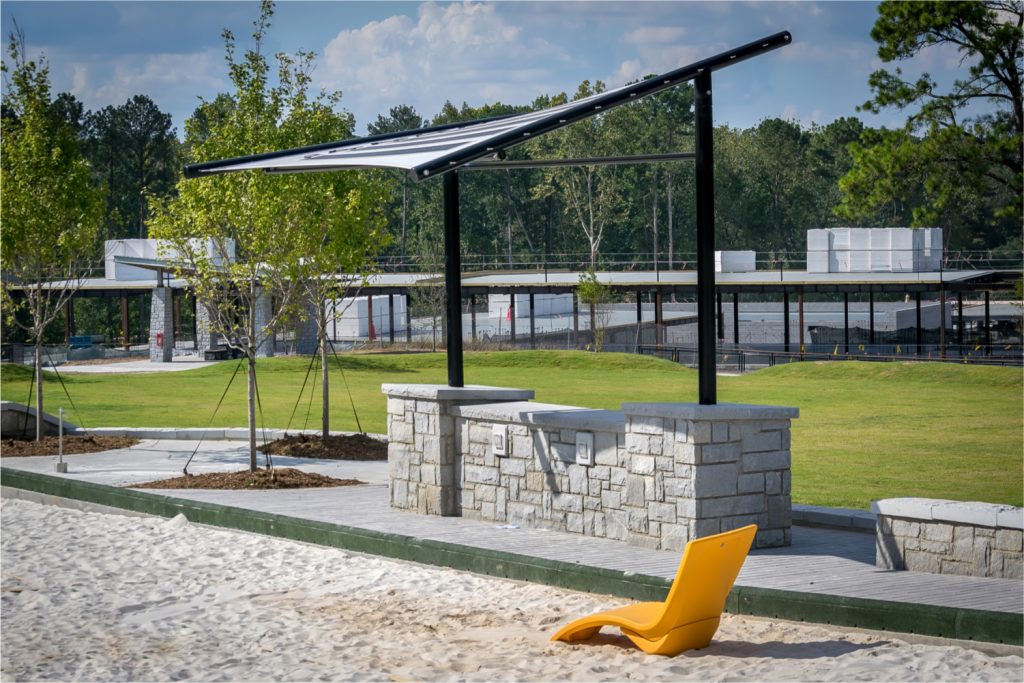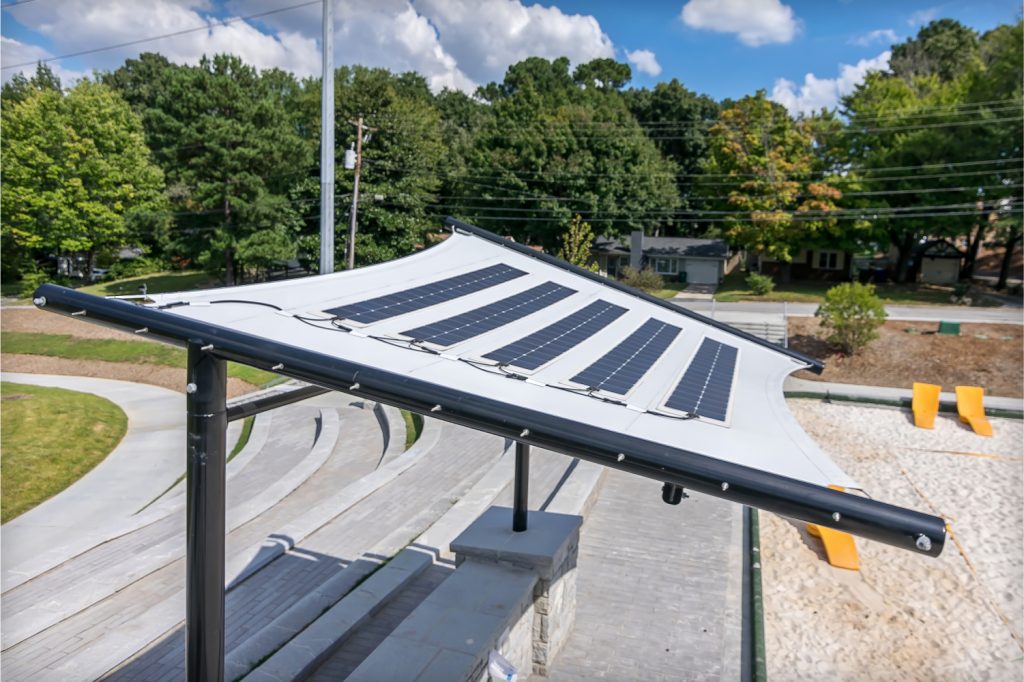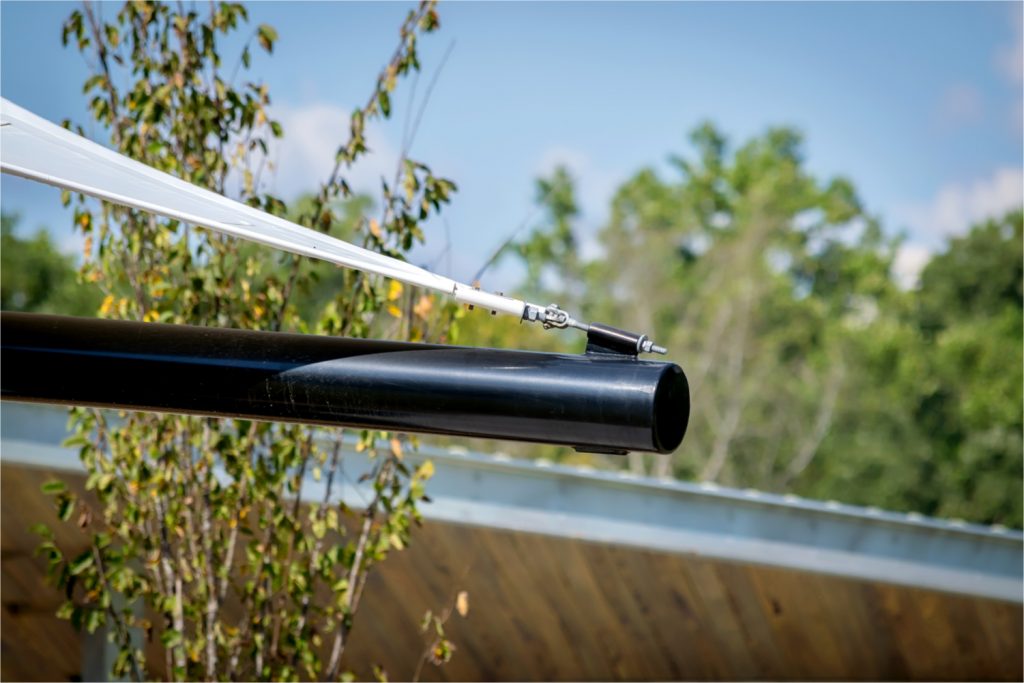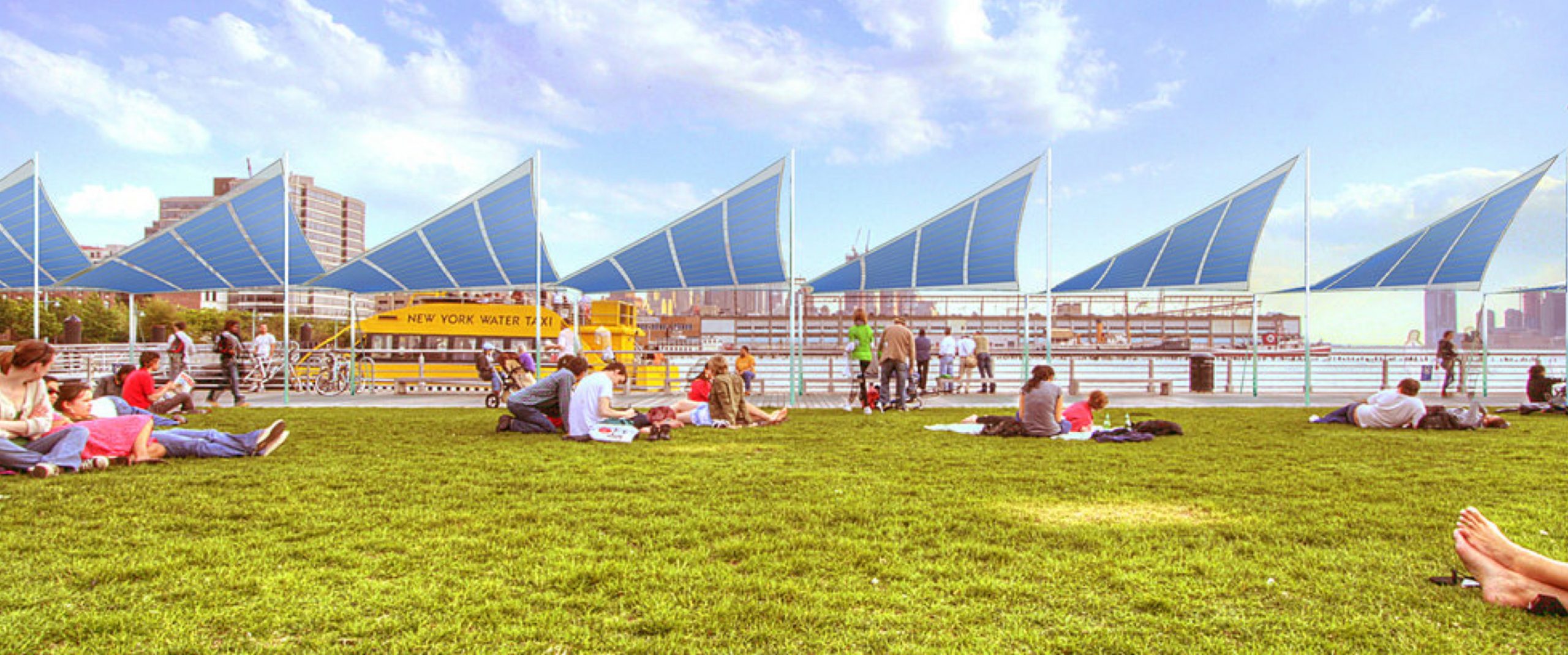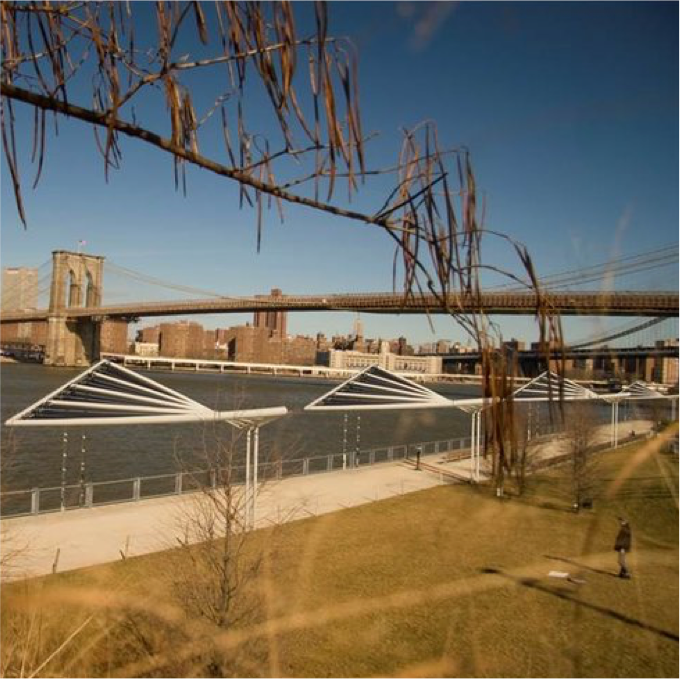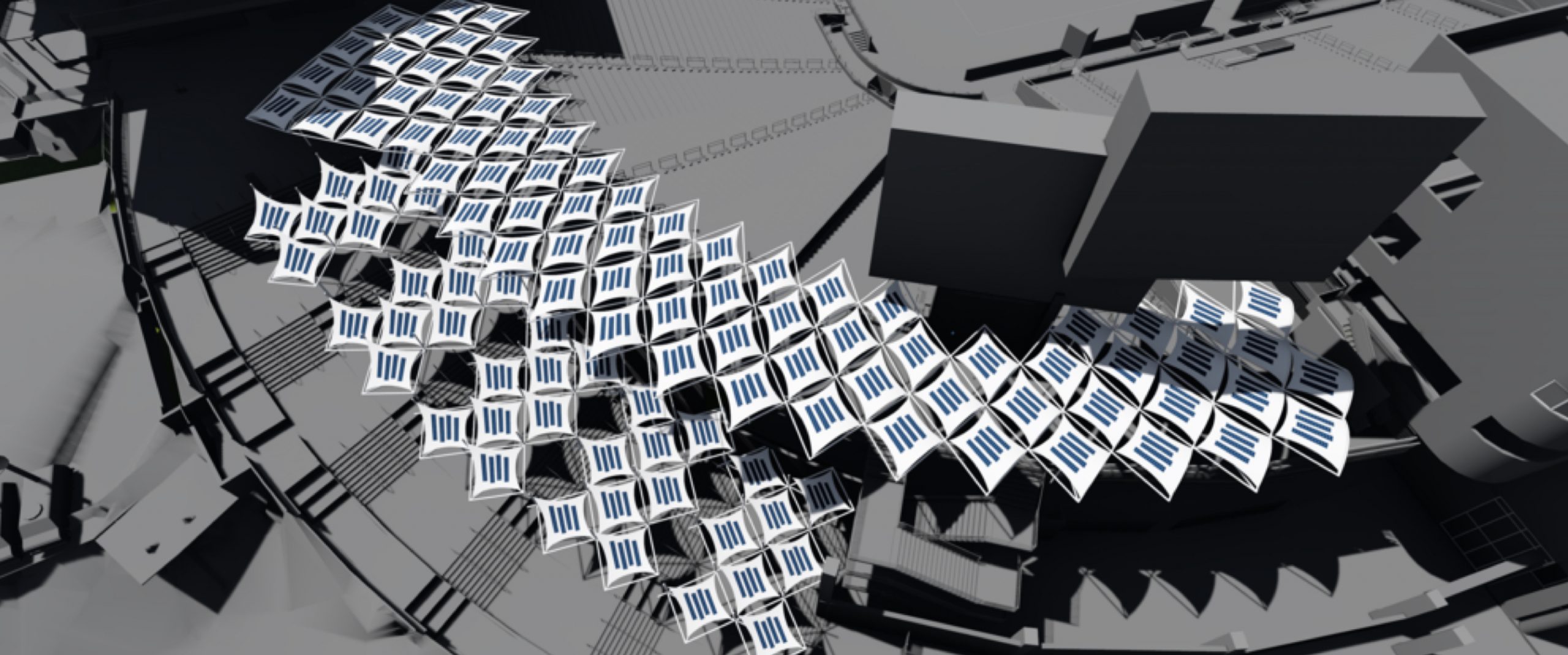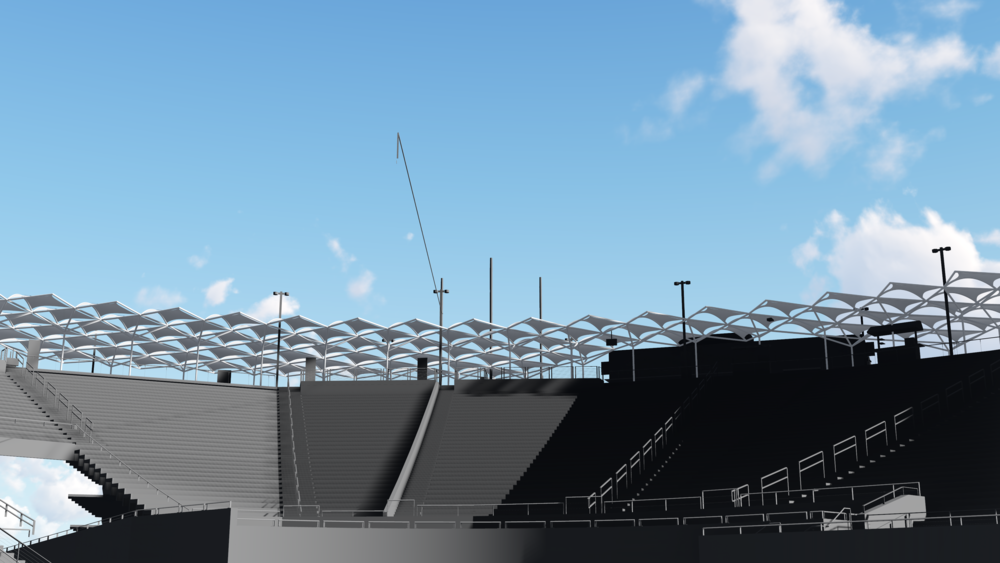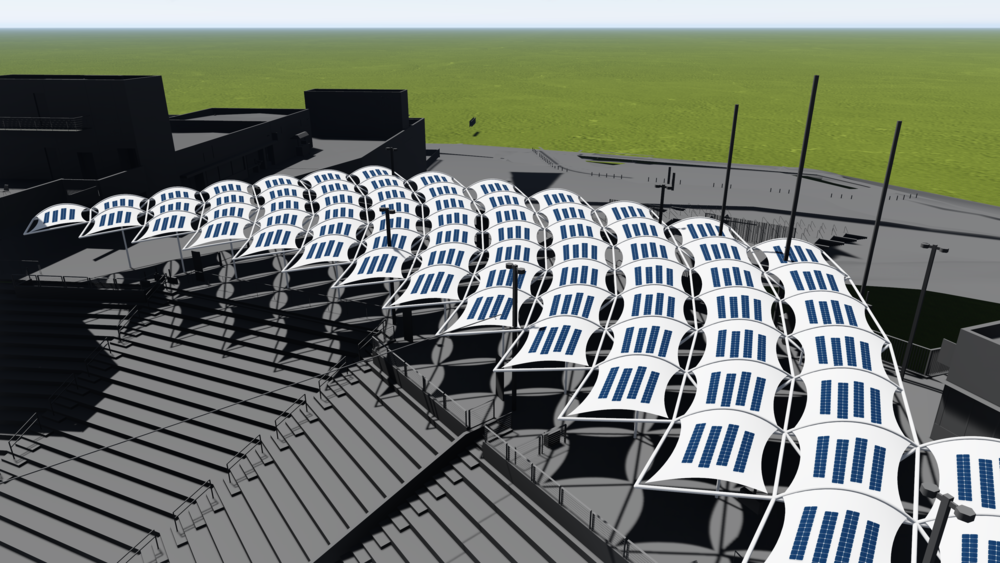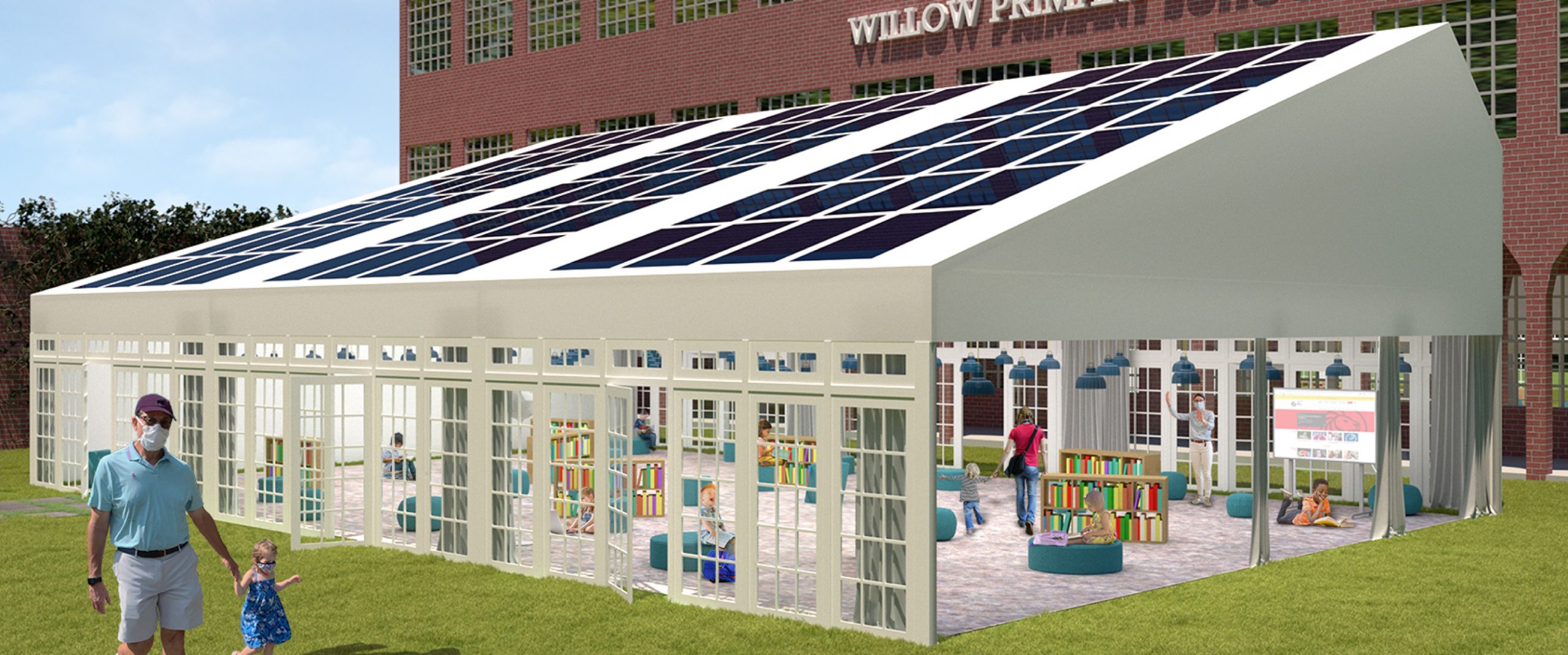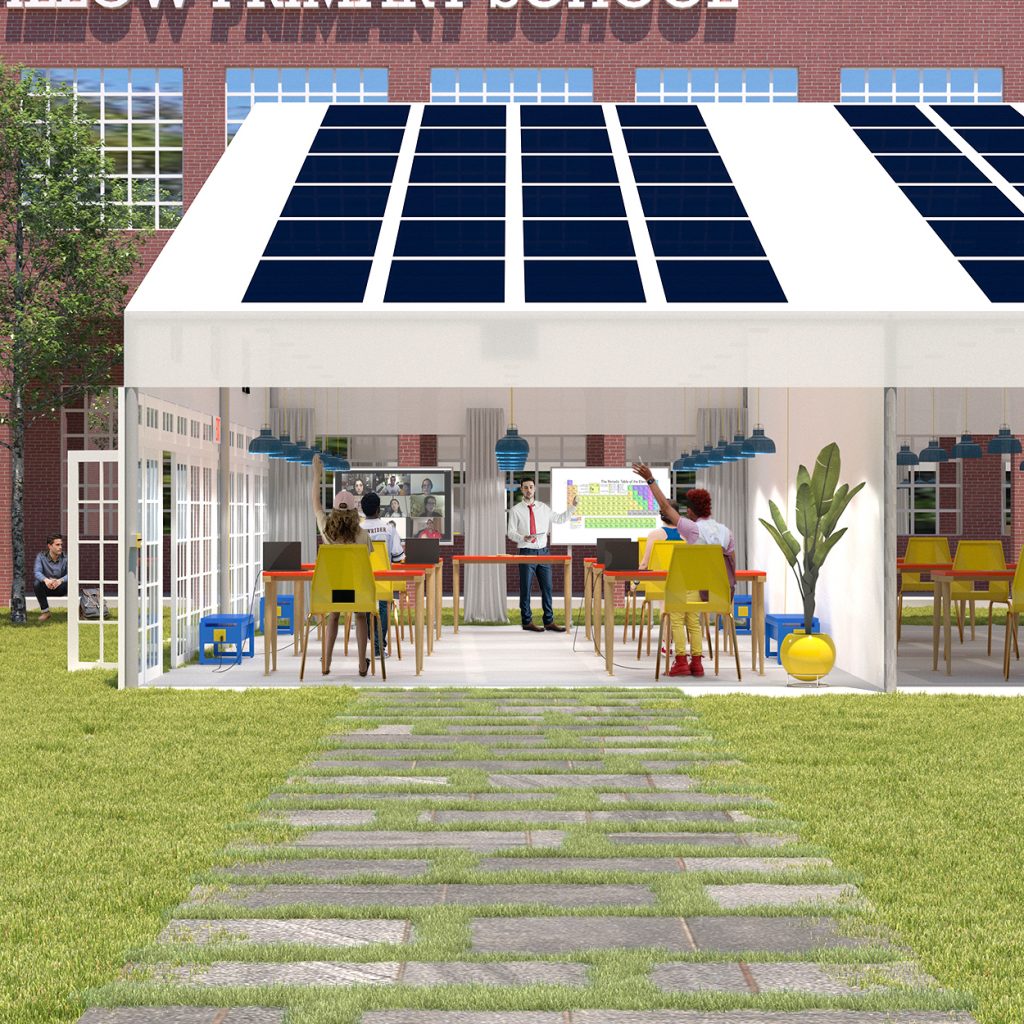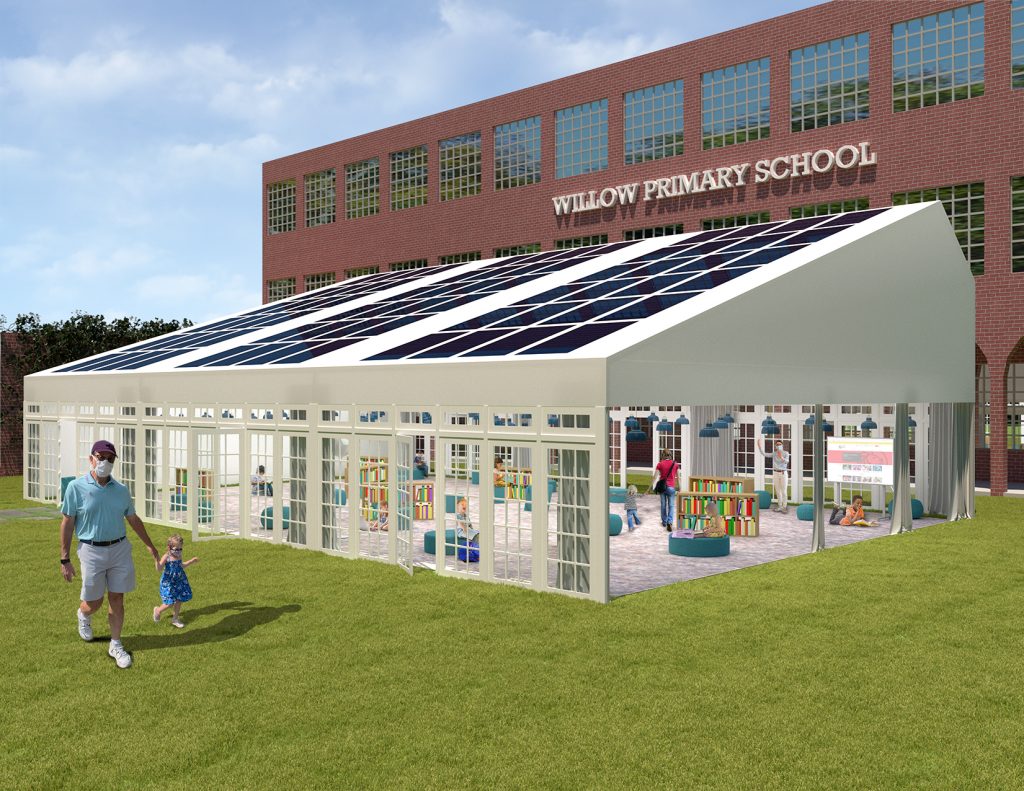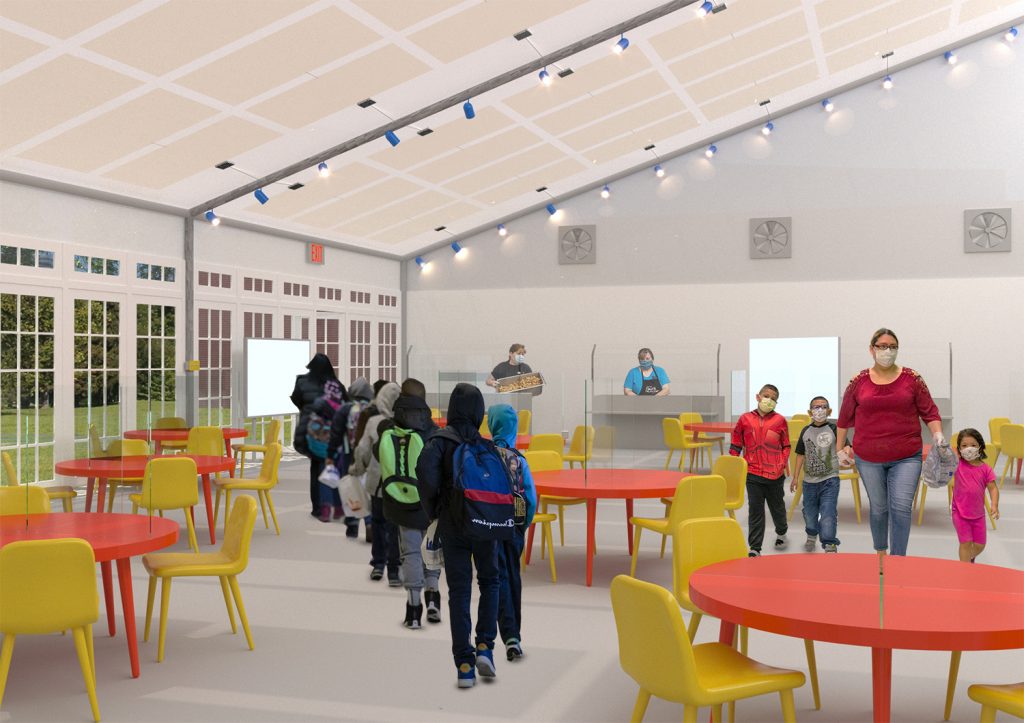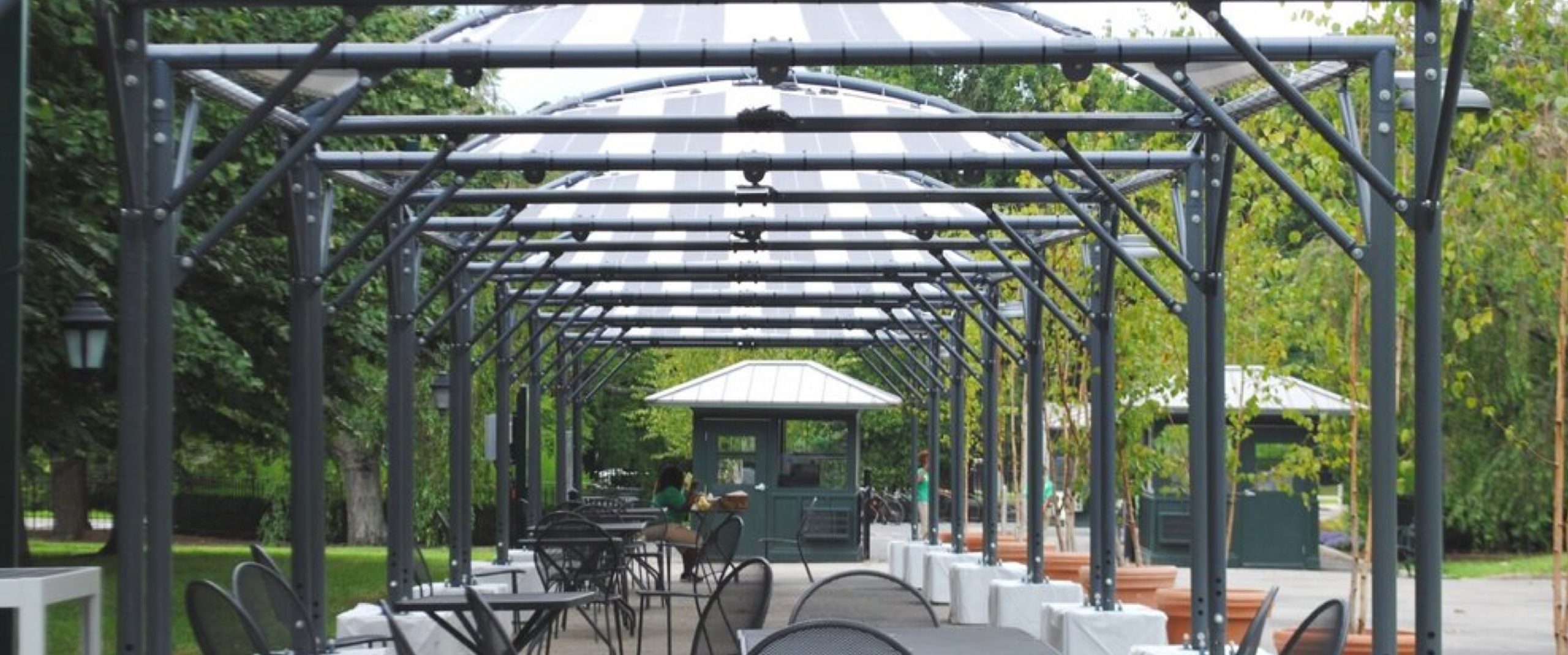The Floridant | June 2, 2022
BROOKLYN, N.Y. & MIAMI – Floridant — Pvilion, a Brooklyn-based solar fabric company, has recently provided the Atlantic Council’s Adrienne Arsht-Rockefeller Foundation Resilience Center with solar capabilities for their first ever Community Resiliency Pod. The use of Pvilion’s lightweight solar fabric— rather than traditional solar panels— has offered an innovative solution that allows for flexible set-up and easy transit. The solar canopies will provide the Pod with upgraded power storage and charging stations for visitors to use while they explore the Pod as it tours different communities throughout Miami.
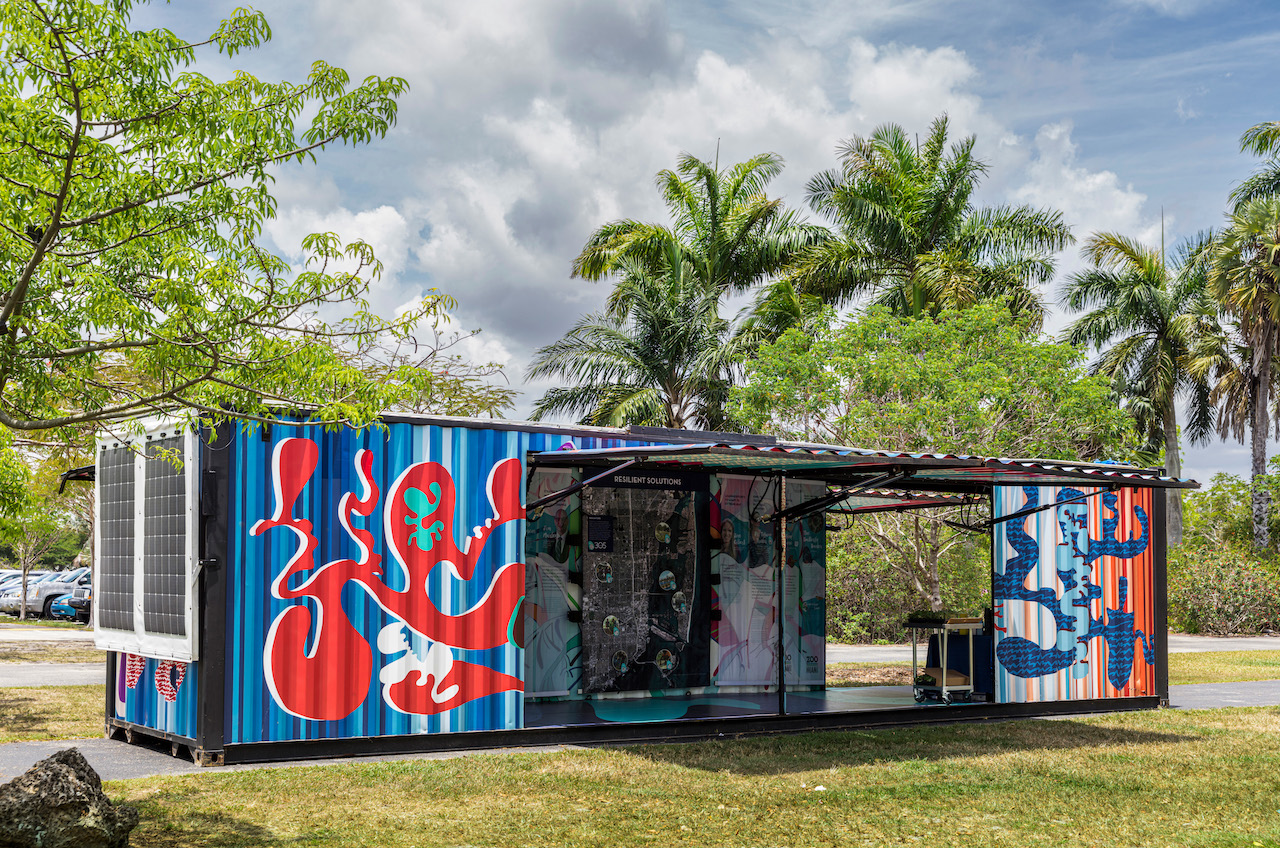
Launched in June of 2020, the Miami Community Resilience Pod was created by the Atlantic Council’s Adrienne Arsht-Rockefeller Foundation Resilience Center, to raise climate change awareness and education in resilience. The Pod is also designed to assist in natural disasters and emergency scenarios throughout South Florida. The Resilience Center was originally a shipping container donated by the Mediterranean Shipping Company (MSC) and has since been transformed to a mobile structure that serves many different purposes in the community. The Pod has been transported to different locations such as schools, parks, libraries, and conferences, where locals can engage with climate experts and learn through interactive programming.
“We are proud to add solar capabilities to the Pod. With its dedication to resiliency and environmental responses, adding renewable energy is the perfect addition to aid in serving the community. Solar will empower the Pod by allowing for independence and flexibility without harming the local environment,” said Pvilion CEO Colin Touhey. The Pod is constantly on the move throughout Miami and most recently made its debut in Orlando, Florida. It has engaged with over 100,000 visitors, and supplies fruit trees, vegetable garden kits and native plants, in addition to hurricane guides and supplies. The Pod was designed and fabricated by CambridgeSeven and is the first of hopefully many more of its kind.
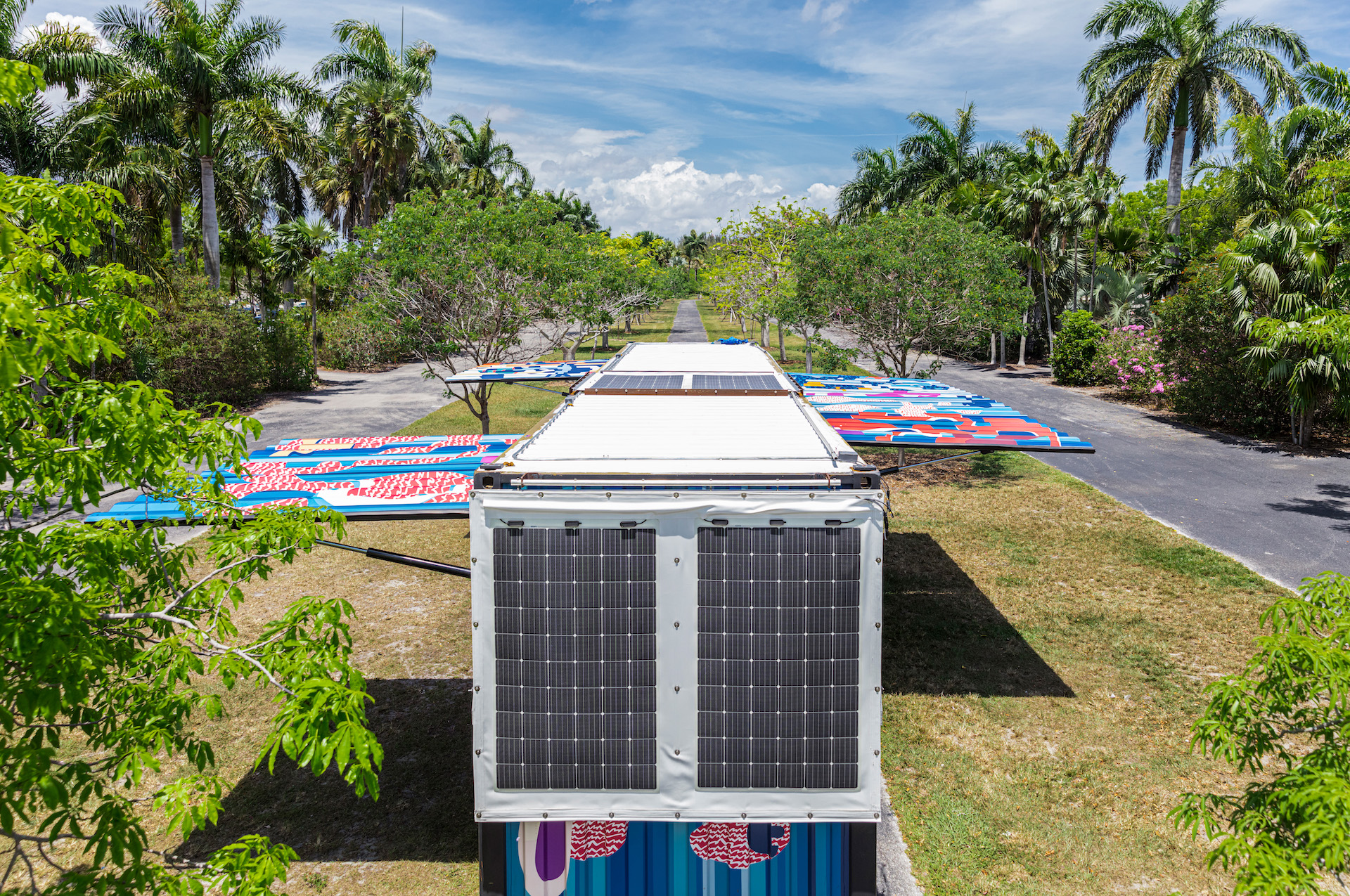
Hurricane season is quickly approaching and officially began June 1st and will last until November 30th. Additionally, Miami-Dade County is now officially in its first “heat season” that will run from May 1st until October 31st. As these conditions affect South Florida, the Pod will serve as an asset to community preparedness and relief.
“We are excited to partner with Pvilion as they supply our Community Resilience Pod with solar power. This renewable energy source, designed in a flexible and lightweight fabric, is an essential component of our Pod. The system demonstrates the importance of individual and community resilience. The advantage of an independent power source supports both our ongoing mobile programming and our future disaster response efforts- where our most underserved residents can charge their devices to stay connected,” said Atlantic Council Director of Strategic Partnerships, Rosemary Mann.
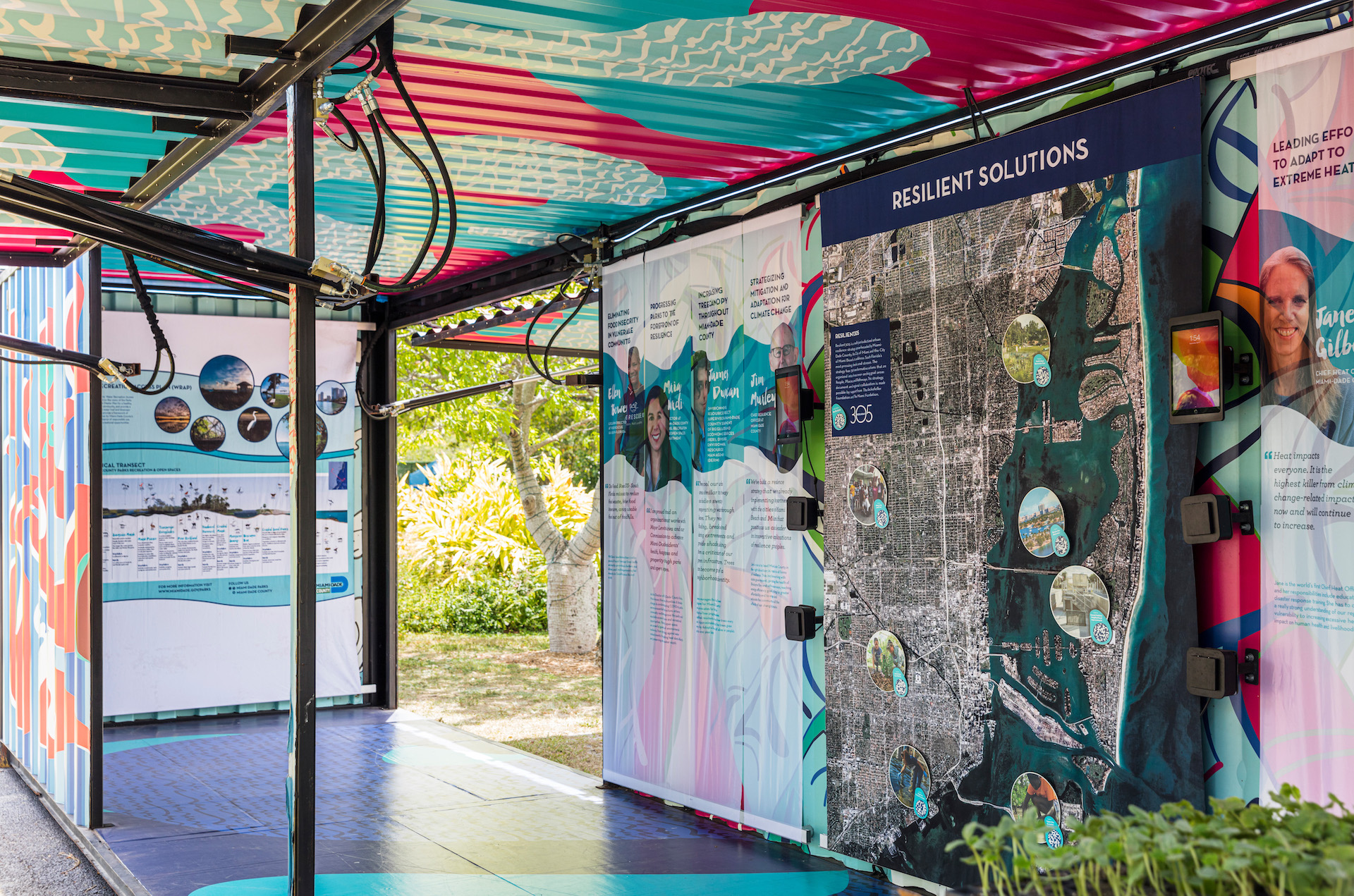
This past April, the Pod was deployed at Zoo Miami, where visitors of the zoo stopped by to explore the Pod and engage with the Arsht Rock team, while learning about the solar installation. In May, the Pod was featured at the inaugural Aspen Ideas: Climate, a global conference on Miami Beach, where the public had an opportunity to learn and interact with others in the community about the realities of climate change. The Pod will continue to move throughout Miami-Dade County all summer long. To tour the Pod, or learn more about their upcoming schedule, please go to: https://onebillionresilient.org/project/community-resilience-pod/
About Pvilion
Pvilion is a solar-based fabrics and tent company, who offers products that range from stand-alone solar canopies to solar military tents, grid-tied long span structures, solar powered charging stations, solar powered curtains, building facades, backpacks, and clothing. They are known for integrating solar cells with fabrics and building fabric products that can generate electricity.
To view the original article, click here.


